A group of Mexican-American teen caddies were forced to build their own golf course. Then they became champions
In 1957, a group of teen caddies at a Texas border country club won the state high school golf championship — despite being banned from courses and tournaments for being Mexican-American. Their story went untold for decades until another local golfer wrote a book — and now a film about their lives is making its world premiere, writes Sheila Flynn
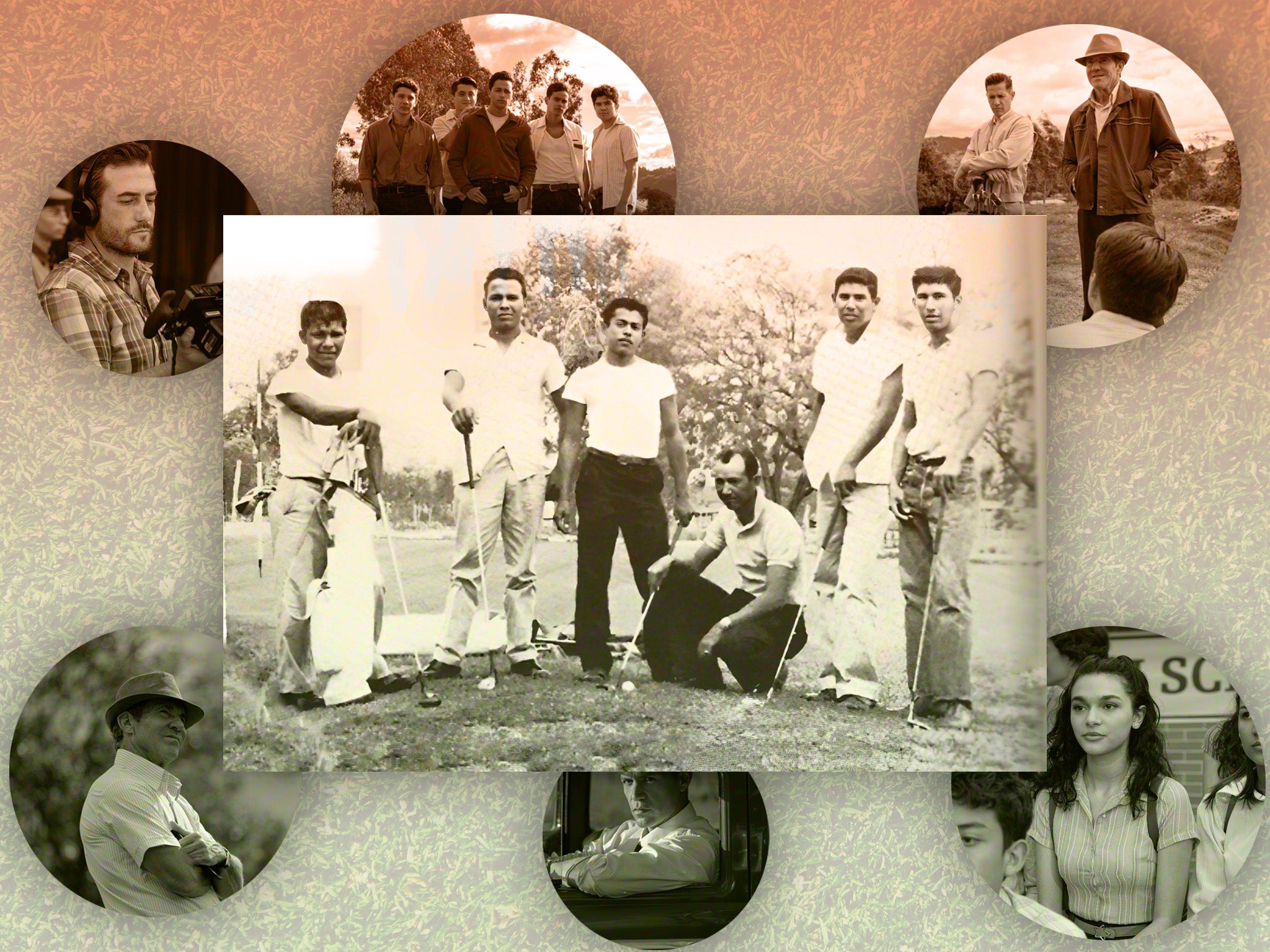
When Felipe Romero followed his friend to a potential job in Texas as a teenager in the 1950s, he’d never heard of a caddie. He wasn’t entirely sure what a golfer was, in fact; country club sports were just about the furthest thing possible from the minds of the young Mexican-American and his migrant worker family.
But Felipe, along with his friend Mario Lomas, quickly took to caddying, learning the sport and growing to love it in the process. It wasn’t long before the boys and caddies Lupe Falen, Joe Trevino and Gene Vasquez began to play themselves, forced to build their own ramshackle practice ground because their ethnicity barred them from playing on the course at their place of employment. That policy also prevented their school superintendent JB Peña from joining the club, a snub that paved the way for him to start the first-ever golf team at San Felipe High School and recruit the caddies.
Little did the fledgling golfers and their determined coach know, one day the team banned from playing on courses would be portrayed on screen — in a Hollywood film telling their life stories.
“This is where I get a little emotional because it was so difficult,” Mr Vasquez, who’s about to turn 83, tells The Independent as his voice breaks. “And now it’s wide open ... We’d like to think that, if we had anything to do with opening the doors for the youth or the Chicano or the Mexican-American movement, this was great.
“Our dreams were not in vain.”
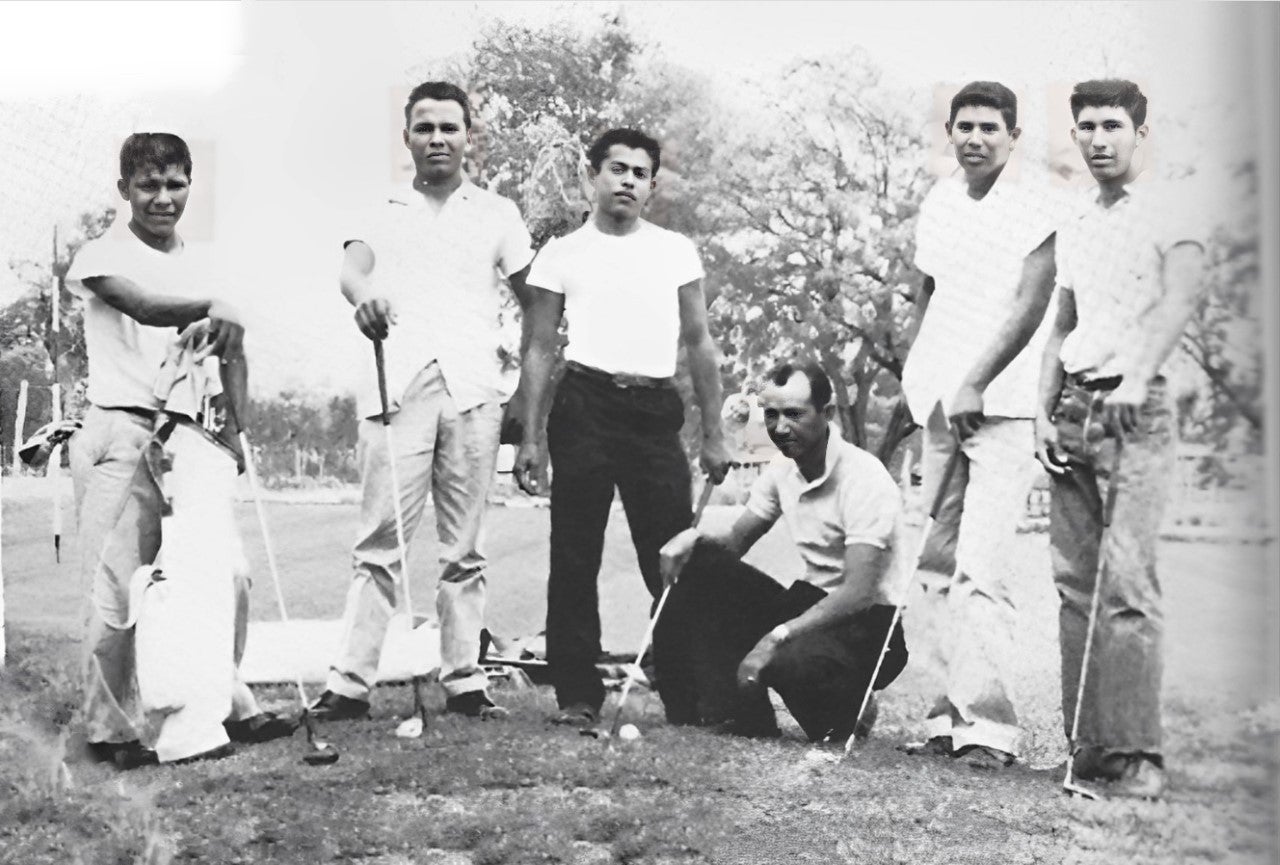
Now, surrounded by fellow members of the team and relatives, he’ll see those dreams play out at the South by Southwest (SXSW) festival premiere of The Long Game, starring Jay Hernandez, Cheech Marin and Dennis Quaid. It’s a story that was nearly lost to the annals of history — until another local golfer and San Felipe alumnus heard about it on the course in 2008.
Lawyer Humberto G. Garcia was playing in a tournament with other alumni when the person in charge of the event introduced San Felipe’s championship-winning team from 1957 — to the shock of Mr Garcia and his former classmates, who’d never heard this triumphant tale despite attending the same school years later.
“The lightbulb went on in my head and I said: ‘I need to write their story,’” Mr Garcia tells The Independent. “Because this is fascinating, because I knew how difficult it was for Mexican-Americans in the 1950s ... and then I also personally knew how difficult the game was.
“When you realize how difficult it was for them, what kind of obstacles they had in their way to even play golf on a golf course, and then to beat all odds and win the state championship, it’s phenomenal.”
The story took place in Del Rio, Texas, which remained heavily segregated in the 1950s, particularly notable in the makeup of the local school district. San Felipe High School was on the wrong side of the creek, in this case; white students attended a better-funded school across town. The future golfers first encountered the sport solely as a job, hoping learning to caddie would help them earn money “so we could buy cold drinks and candy and go to the movies,” Mr Vasquez says.
But they quickly fell under the spell of the game as they watched the older, wealthier white patrons play.
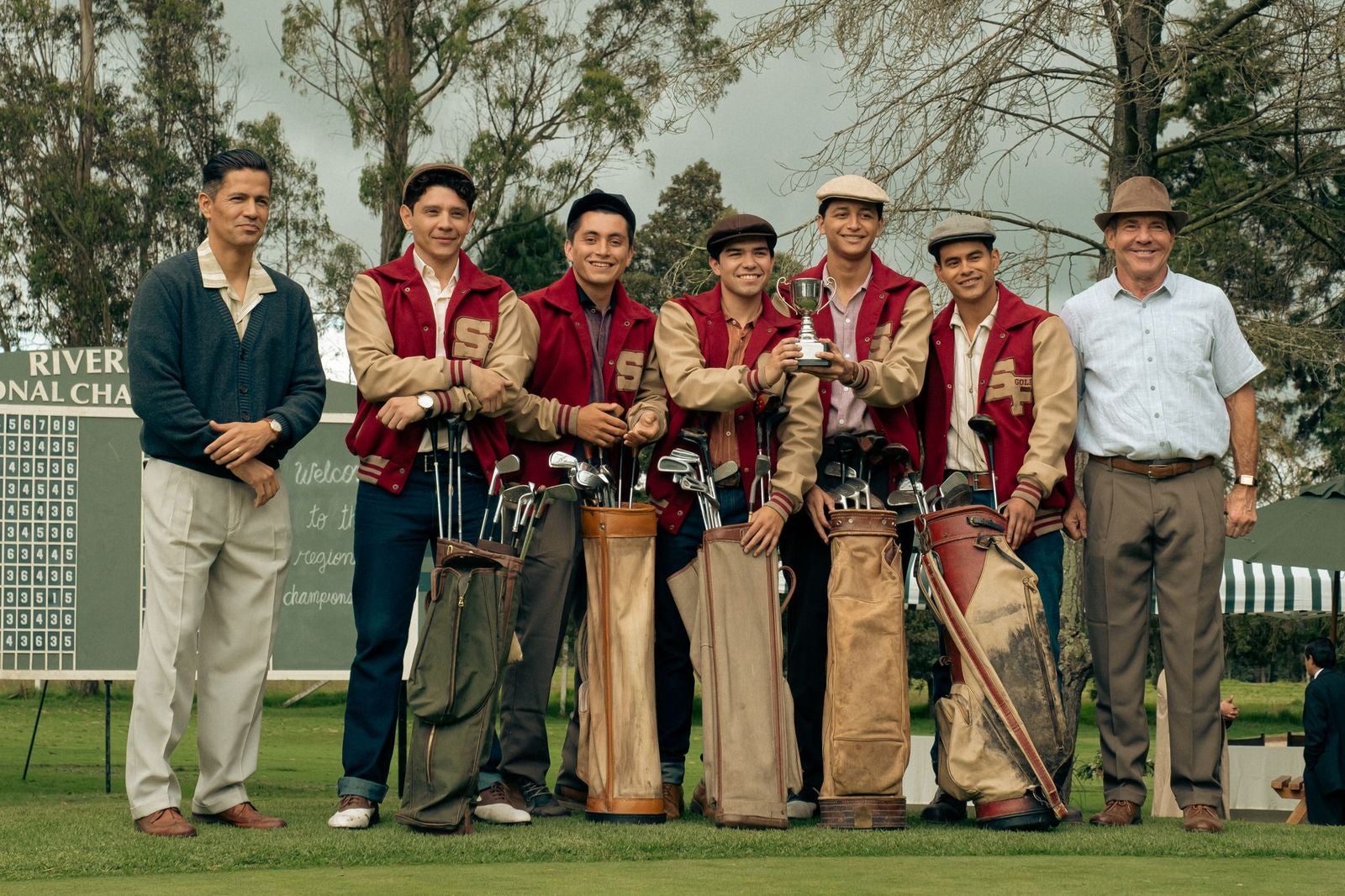
“Golf is very addictive once you start swinging a club,” says Mr Vasquez, who only stopped playing the game a few months ago for health reasons. “And once you start hitting balls, you want to continue doing it. And once we found out we couldn’t do it in the golf course, [we decided] we will get together, the four or five of us, start swinging.”
They were doing so with old, borrowed, discarded and rusted clubs, perfecting their game on a makeshift course they fashioned and named El Llanito, or “little plain.” As they were practicing, perhaps serendipitously, the San Felipe superintendent was trying to join the club they worked at.
Mr Peña, a World War II veteran, walked into San Felipe Country Club with civil service worker Hiram Valdes in 1955 and asked for applications. After receiving letters politely rejecting their membership at the all-white club, Mr Valdes suggested that he’d seen other high schoolers practicing golf — and a San Felipe team would be a great way to get local teens into the sport.
They’d noticed the caddies playing and recruited them; Mr Vasquez was initially still in junior high but was allowed to practice with the team. As the older men helped the players hone their skills and tried to get them better equipment, there were other barriers: many courses wouldn’t let the Mexican-Americans play and the first tournament that would was a seven-hour drive away.
Still, they got better and better — as their families remained blissfully unaware of just how talented and competitive their sons were becoming.
“They were very busy making a living, and all they were worried about was us geting in trouble and going to school,” Mr Vasquez says. “So as far as encouragement ... that they were not.”
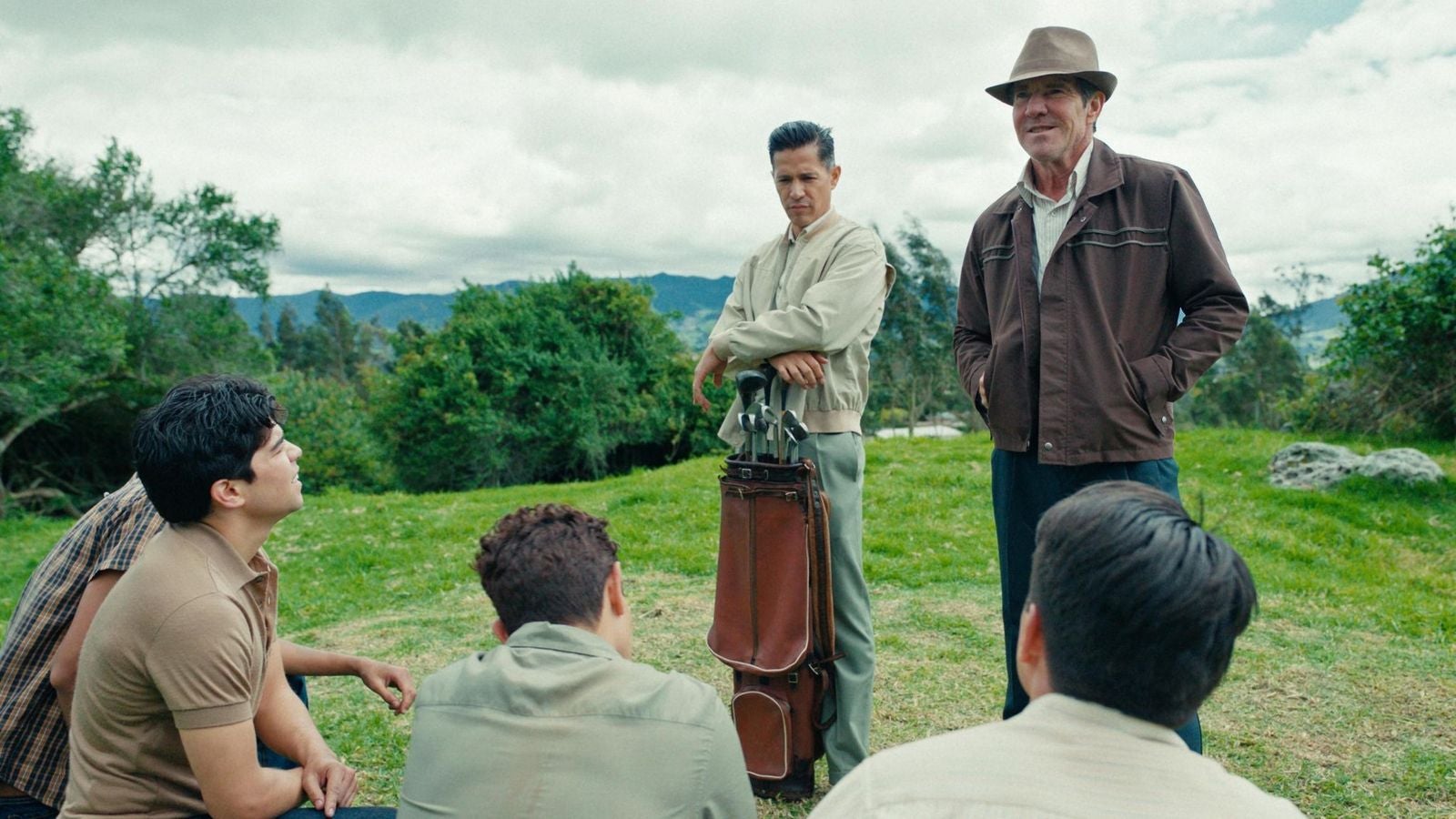
Their sons were more than ready for the 1957 state championship, however, and they headed to Austin to compete against teams that were unaccustomed to — and many opposed to — seeing Mexican-Americans on golf courses in any capacity other than working.
And then those Mexican-Americans beat them.
With Mr Vasquez’s final putt, the team not only won by 35 strokes, they also made it a clean sweep. Joe Trevino took home the individual medialist with a total score of 150; Felipe Romero took the silver medal with a score of 158; and Mario Lomas won the bronze with a score of 159.
But the day’s triumph was tarnished when organisers simply handed the trophy to Mr Peña; the usual awards ceremony was cancelled, they were told — given a lame excuse about the weather. While the teams and organisers reluctantly accepted the boys’ win, it was too far a step for them to celelebrate it — or even publicly acknowledge it.
“When they won the state championship, they were shunned,” Mr Garcia tells The Independent. “They weren’t recognised in a formal ceremony. They weren’t presented the trophy in front of everybody else or their medals in front of everybody else.”
But Mr Peña wouldn’t leave it at that, secretly organizing a vibrant reception for his players at the school and in their town. They reveled in the celebrations, fully conscious at their young ages of just how significant the achievement was. But the story eventually faded, and it took decades for the wider Texas community to recognise their against-all-odds victory.
After Mr Garcia’s book, Mustang Miracle, was published in 2010, however, the stories of the teen golfers — by then retired grandfathers — resonated deeply. The following year, the Texas House of Representatives unanimously passed a resolution honouring Mr Peña, Mr Valdes and each of the team members, and in 2012, they were inducted into the Latino International Sports Hall of Fame.
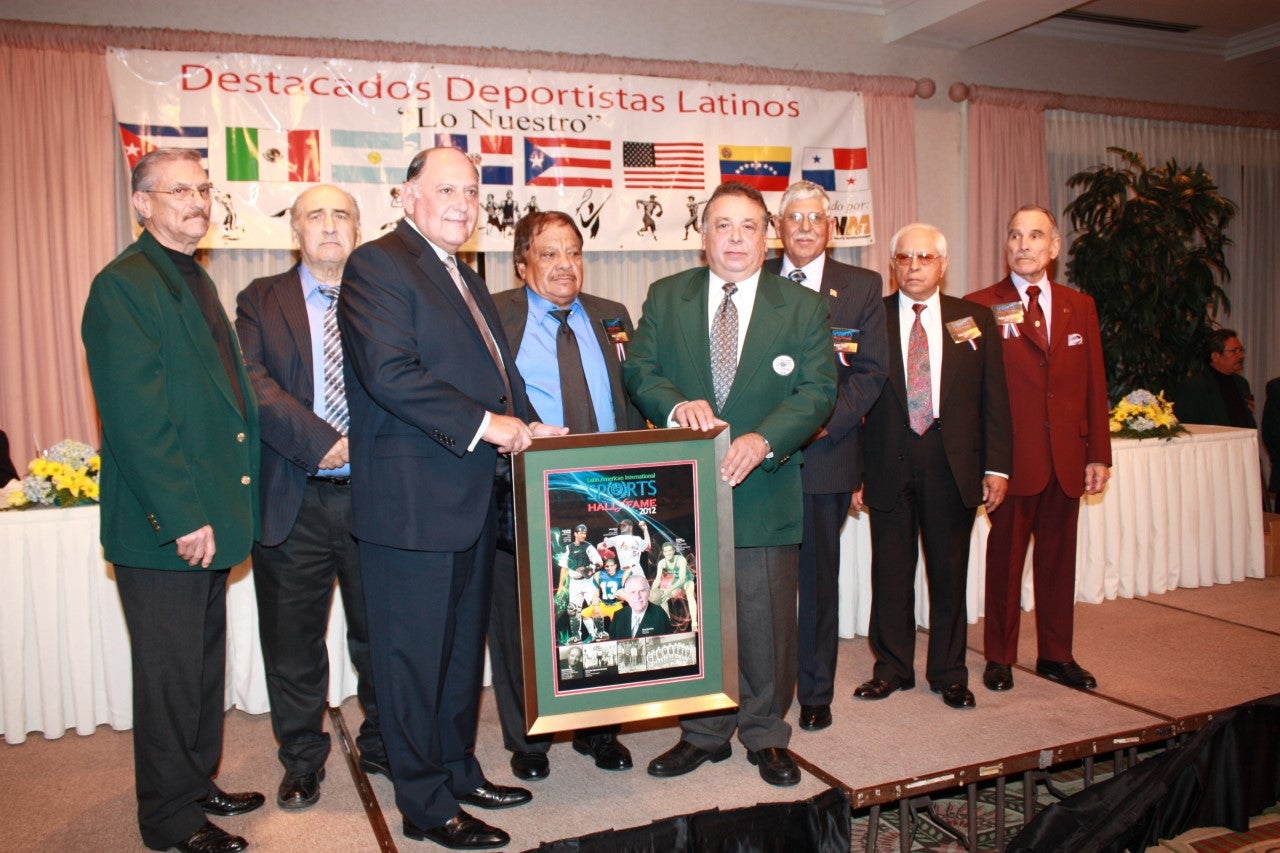
Five years later, Mr Garcia received a call from a law graduate, Javier Chapa, who’d impressed the older lawyer so much when he’d worked during senior year at his firm that Mr Garcia convinced his partners to offer him a job.
“His response to me was: ‘Thank you, Humberto, but I’m not going to practice law,’” Mr Garcia says. “So [I said] ‘Why? You just went to law school!’”
“I did that for my parents ... I’m not even going to take the bar,” he says Mr Chapa told him. “I’m going to Hollywood.”
He indeed joined the film industry, it turns out — and in 2017 called up his old mentor to say he’d read Mustang Miracle and was interested in making it into a movie. Six years later, Mr Chapa is a producer on the new film based on the book, directed by Julio Quintana.
“Both my parents are from Cuba, and I grew up on stories of my dad making baseballs out of electrical tape and my grandfather having to piece together one working car out of two busted cars,” Mr Quintana tells The Independent. “And so a story about these kids who weren’t allowed to play on the exclusive golf course — so they just went ahead and made their own golf course out in a field somewhere — that really, I felt, embodies a lot of the American spirit, especially with things that a lot of immigrants go through. And pretty much anybody who wants to accomplish anything, just sort of make your own opportunities and figure out how to open doors that are typically closed to you.”
The team members went on to play golf throughout their lives, as did Mr Peña, who passed away in 1986. Mr Valdes died in 2007 at age 93.
Felipe Romero even played golf professionally, competing in national and international golf tours through the 1980s. He retired from the Houston Metropolitan Transit Authority after 29 years. Mario Lomas became a professional golf caddy in the PGA tour, then continued working in the golf sphere in Texas.
Lupe Felan became a Marine and served for more than 30 years, playing in military golf tournaments througout his career. He then worked for the State of California before retiring and becoming an active member of the South California Golf Association, Southern California Mexican American Golf Association and the Marine Combat Center Golf Association. Joe Trevino spent much of his career working — and playing — on military golf course bases, and even transferred to a California base at the request of the Commander who’d often win games when partnered with the Mustang alum. He retired to Del Rio and died in 2014.
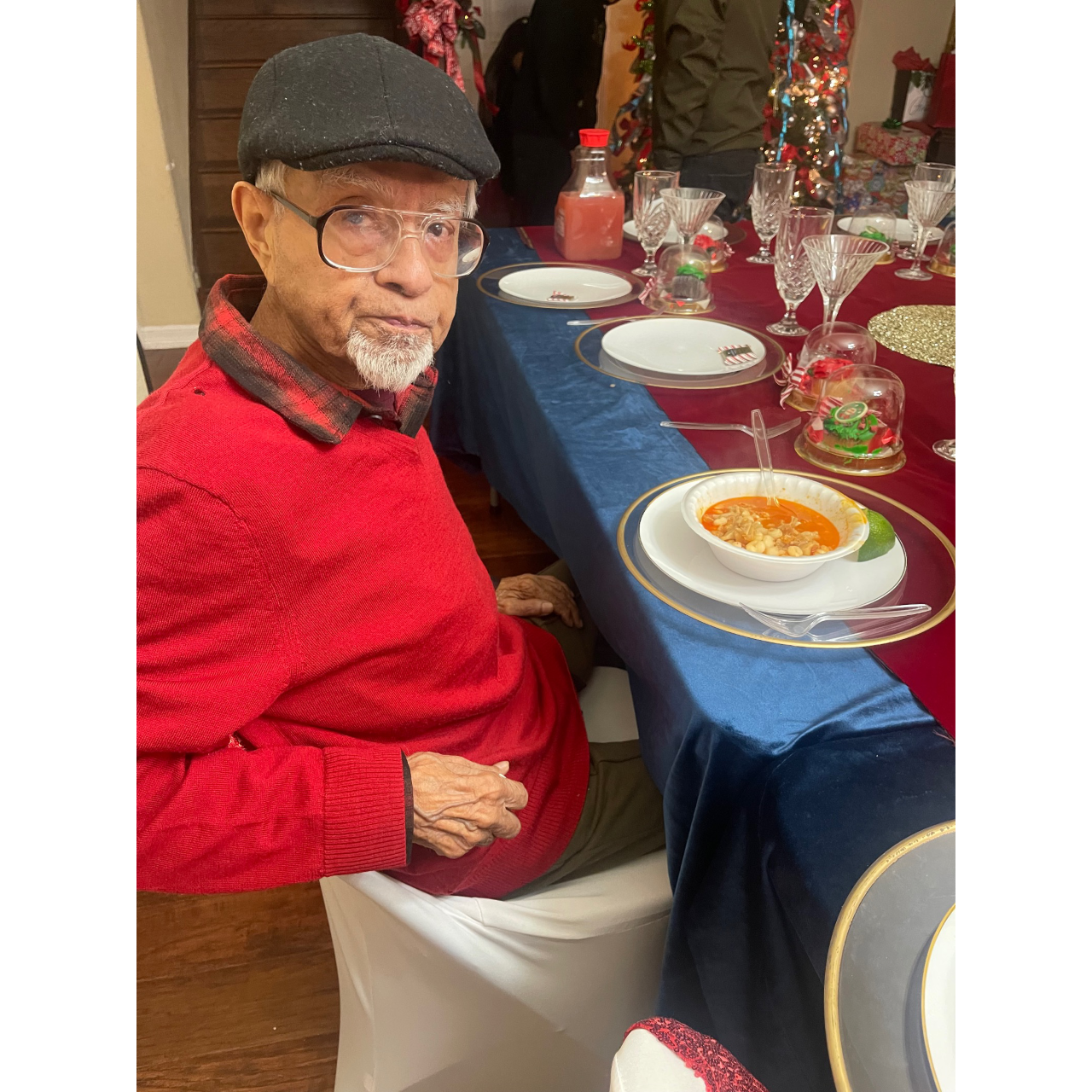
Mr Vasquez, like the boys’ mentor Mr Peña, devoted his life to education and returned to Del Rio, also, to teach in its schools. As the film prepares to bring his story to audiences around the world, he remains a vocal proponent of the benefits his beloved sport can have for young people.
“None of the five of us ever got in trouble with the law; it kept us busy,” he tells The Independent. “So golf is a very, very good game for the youth. We encourage the people to mind their teachers, to change school, mind their parents, take care of their bodies, stay away from drugs and gangs, and just go for the sky — make it happen.
“In this country, we would like to emphasise that everything is possible. We have a lot of help. We have a lot of grants ... anybody who wants to go through college can do it. And we definitely encourage the youth to go to school, and be prepared for life ... and you’ve got to compete.”
For Mr Garcia, it’s gratifying that wider audiences will come to know a story that even he hadn’t heard as a boy growing up in Del Rio. The film is a true sports tale with significant heart — despite, of course, some Tinseltown creative license — and he hopes it will continue to inspire viewers at a time when he feels parts of American society are backsliding into division and discrimination.
The story, he says, shows that “anything is possible, if you work hard at it, you persevere and never give up.
“But more importantly, for our youth — and I’m talking more specifically about Mexican-American youth — I want them to see that, at the times when it was really bad for their forefathers, their grandfathers and great- grandfathers and how life was difficult for them, they were heroes. They were people that accomplished [feats] that can serve as role models to the youth.”
“They had much less than what you have now. They were poor, they didn’t have the best of equipment, they didn’t have professional lessons, guidance, they had to learn the game on their own. They couldn’t even practice on golf courses; they had to create their own,” Mr Garcia says. “And yet, they succeeded and achieved something very significant. And that has to make them feel good, that there’s people that belong to us that were successful and achieved something like winning a state championship.”
He adds: “We have come a long way since the 50s. When I started writing this and working on getting it into film, I didn’t think so much about some changes going on in this country. But it seems to me like some of the accomplishments that were achieved In the Sixties, Seventies, Eighties and Nineties are being undermined more and more by a segment of America. And I think this film coming out at this time serves, as well, as a reinforcement of the changes that we’ve made in society.”
Join our commenting forum
Join thought-provoking conversations, follow other Independent readers and see their replies
Comments
Bookmark popover
Removed from bookmarks